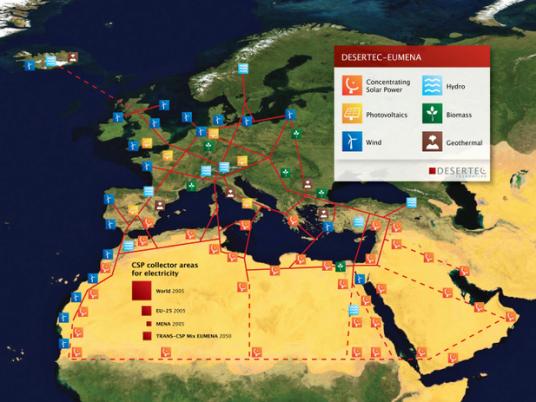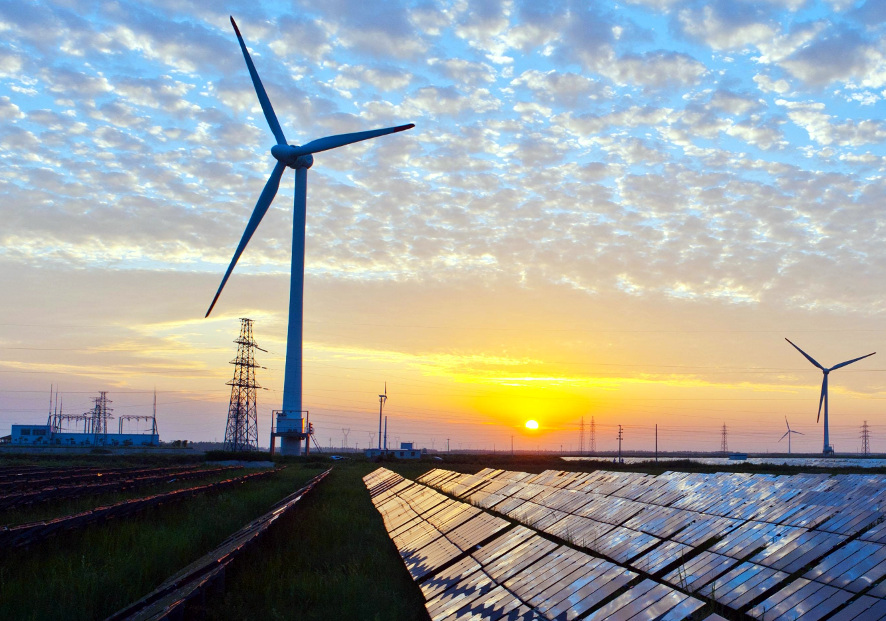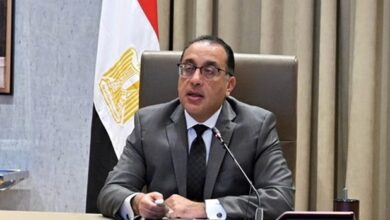
The Desertec Foundation is encouraging universities and research centers across the Middle East to collaborate and train high-skilled professionals in renewable energy. This German not-for-profit envisions transforming the region’s deserts into a major energy provider by installing massive solar plants from Morocco to Turkey.
To that end, the foundation presented the Desertec University Network (DUN) during this week’s “Cairo Climate Talks.”
DUN is a bottom-up initiative spurred by research centers and universities in the Middle East. Introduced in 2010, it promotes education and research through close international cooperation between regional and German universities in the field of renewable energy and energy efficiency. It also aims at reconnecting academic and industry needs.
The workshop was organized by the German Academic Exchange Services (DAAD) — which also funds DUN — along with panelists from universities and industry and government representatives. Mouldi Miled, the secretary general of DUN, co-founder of the Desertec Foundation and a member of the Tunisian Council for Research, was one of them.
Miled explains that “there is a dire lack of conversation between academics and industry experts in the region,” stressing that DUN wants to reenergize this relationship by designing master’s programs and training new professionals, thus addressing the industry’s dire need for more experts in the field.
Emad Ghaly, an engineer from Siemens Egypt, explains that “the technology exists, what is lacking is local experts in renewable energy that could operate a solar plant and manage the site.”
“Within the industry,” he continues, “we don’t find highly skilled labor in the field of renewable energy, and that’s how DUN comes into play — it will train future regional leaders in solar and wind energy.”
DUN currently has 25 members from universities and research institutes in Morocco, Libya, Tunisia, Egypt, Jordan and Germany, and the network is expanding as other universities have asked to join.
“In addition to Cairo University and Alexandria University in Egypt, Helwan and Assiut should join DUN in the coming months,” said Miled, adding that some Palestinian and Jordanian universities are also in the pipeline.
Miled explains that some collaboration programs under the umbrella of DUN are already on the way.
“We are practicing horizontal cooperation through academic programs between the French speaking countries Morocco and Tunisia, and DAAD provides help by organizing workshops throughout the region,” he said.
But even more important than collaboration is the mobility of professors, students and programs, according to Miled. “Institutions in the Middle East are poor in master’s programs in renewable energy, so we want to help professors from Germany give some classes in other universities, while we want to facilitate the transfer of students from one university to the other,” he says. DUN is also looking at e-learning, through which they could develop a common curriculum available to all regionally-based students in the field.
Professor Galal Osman, the vice president of World Wind Energy Association (WWEA), raised an important point for the initiative. “What DUN should be able to achieve is to transfer credits between participating universities, like what the European Union has achieved with the ‘EuroPass,’ which homogenized diplomas,” he says.




